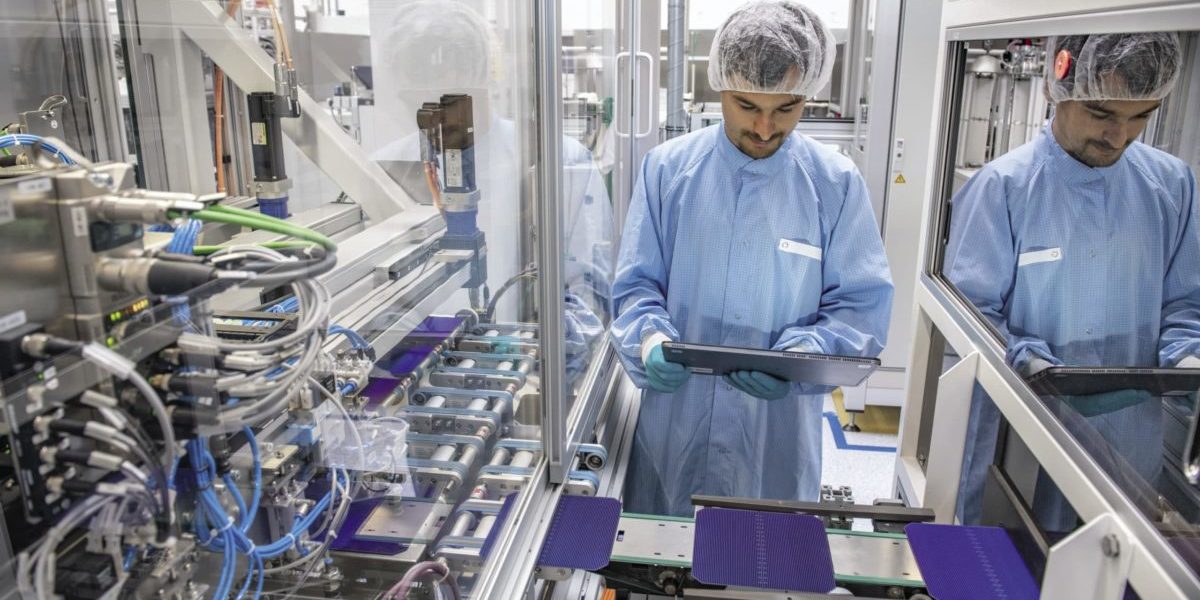From pv magazine Germany
Meyer Burger Technology AG has revealed plans to raise CHF 250 million ($255.2 million) via an ordinary capital increase, by issuing new subscription rights. It aims to use the funds to rapidly expand production to 3 GW, and is set to vote on the plan at its extraordinary general meeting on Oct. 28.
The Switzerland-based solar module manufacturer recently sealed a supply agreement with US project developer DE Shaw Renewable Investments (DESRI). The agreement states that Meyer Burger will supply 3.75 GW to 5 GW of heterojunction solar modules to DESRI over a period of five years from 2024. The contract includes a fixed basic price, with a possible adjustment to wafer prices.
The company's board mainly wants to finance the planned expansion of production capacity for its solar cells and modules. The CHF 250 million will support the expansion of heterojunction cell production in Thalheim, Germany, and the development of module production at the company's US site in Arizona.
More than 40,000 square meters of additional space will be available in Thalheim for the new cell production facilities. And the company expects the first module deliveries from its Arizona plant to start in mid-2024.
The company is also hoping to benefit from political momentum. Europe's Fit for 55 package and REPowerEU Plan, as well as the US Inflation Reduction Act, could help to drive the development of the solar industry. Meyer Burger believes it is positioned to benefit from these trends, as it is one of the few established PV cell and module manufacturers with production outside of Asia.
Meyer Burger is targeting around 3 GW of new annual production capacity by the end of 2024, including 1.4 GW of module production capacity in Freiberg, Germany. In the USA, the expansion of around 1 GW of module production capacity is planned. While Meyer Burger focuses more on the sale of heterojunction modules for rooftop systems in Europe, in the United States, it is focusing on the large-scale segment.
In Freiberg, the company now has an annual production capacity of 400 MW and is ramping up its second production line. The ramp-up started as planned in September and after completion, 1 GW of production capacity will be available. Additional expansion to 1.4 GW has already started.
This content is protected by copyright and may not be reused. If you want to cooperate with us and would like to reuse some of our content, please contact: editors@pv-magazine.com.




3 comments
By submitting this form you agree to pv magazine using your data for the purposes of publishing your comment.
Your personal data will only be disclosed or otherwise transmitted to third parties for the purposes of spam filtering or if this is necessary for technical maintenance of the website. Any other transfer to third parties will not take place unless this is justified on the basis of applicable data protection regulations or if pv magazine is legally obliged to do so.
You may revoke this consent at any time with effect for the future, in which case your personal data will be deleted immediately. Otherwise, your data will be deleted if pv magazine has processed your request or the purpose of data storage is fulfilled.
Further information on data privacy can be found in our Data Protection Policy.